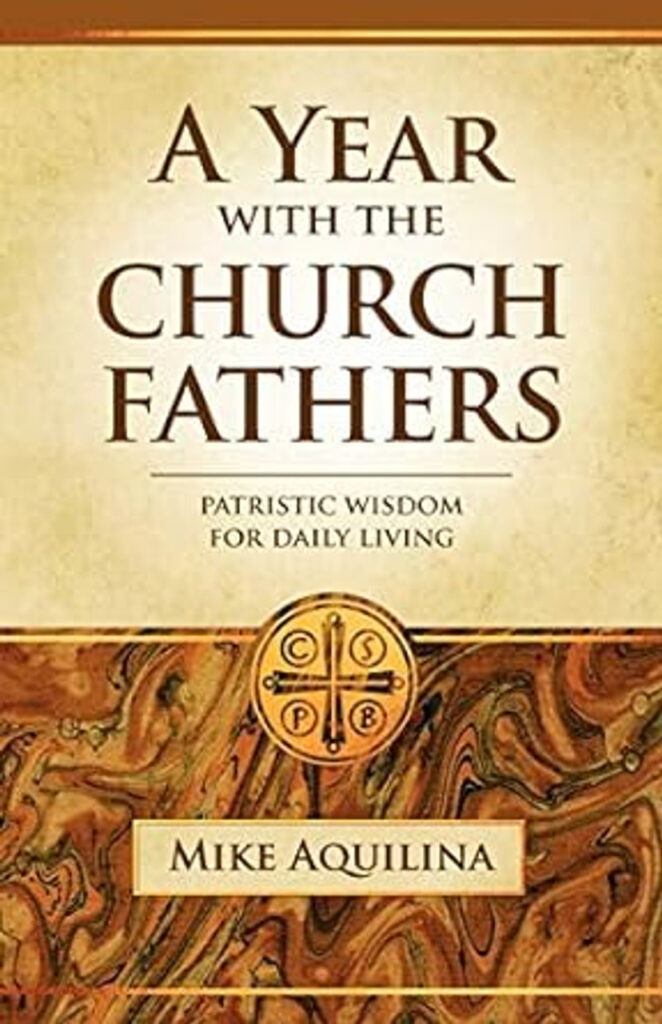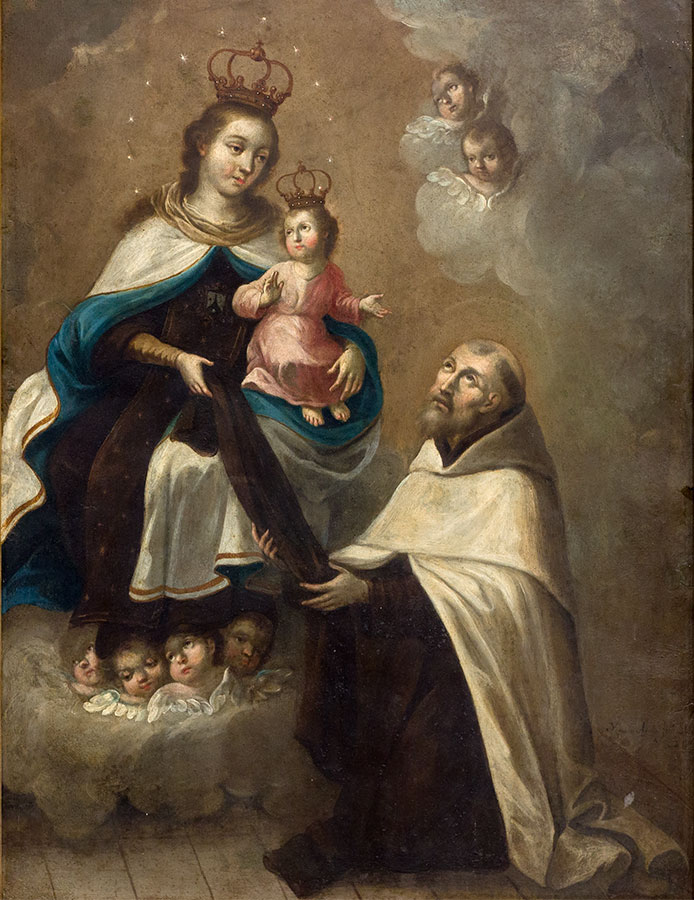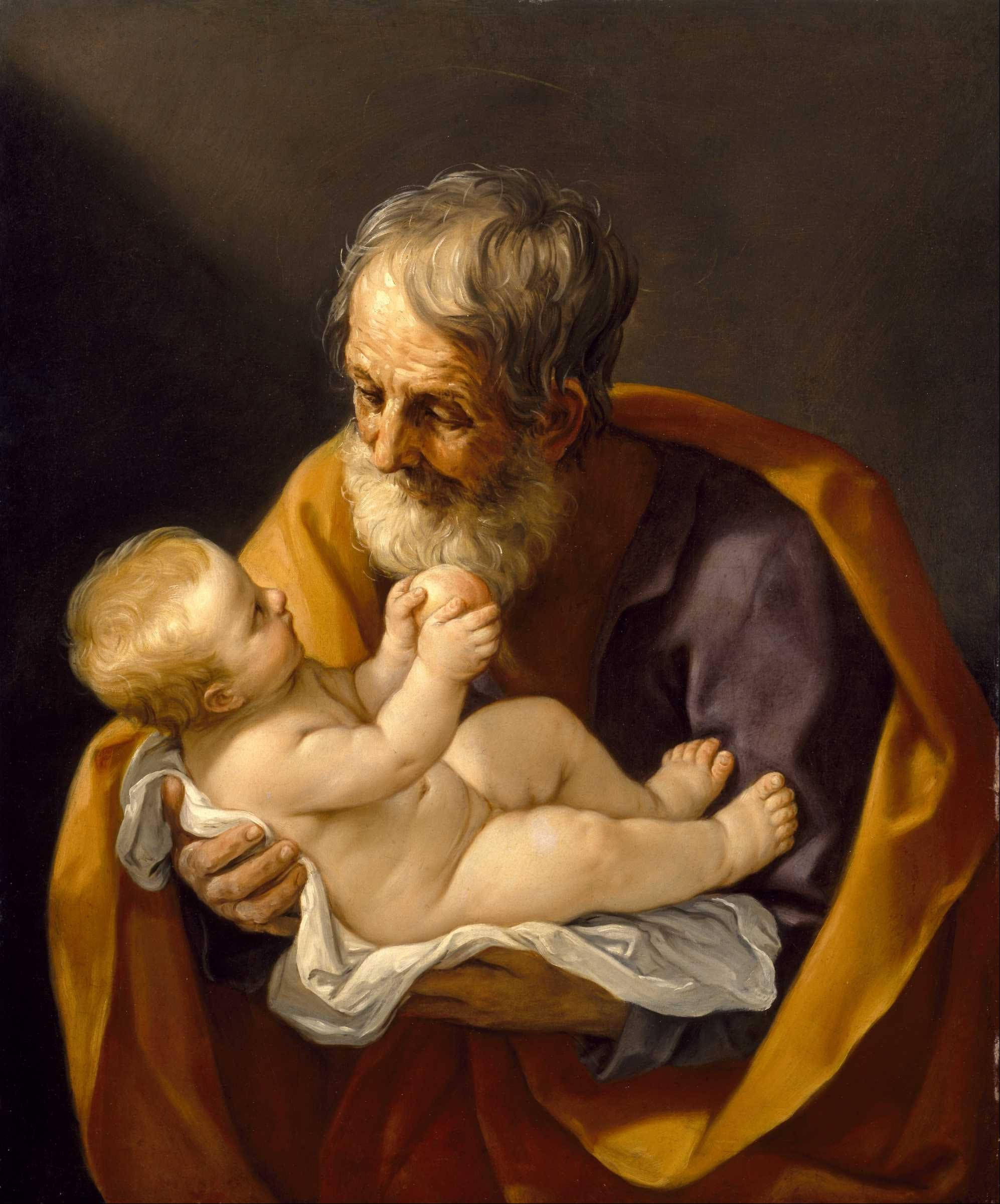In A Year with the Church Fathers, Patristics expert Mike Aquilina gathers the best teachings from the Fathers of the Church for daily meditation and inspiration. From Tertullian and Origen to St. Augustine and St. Gregory the Great, this year-long retreat employs forty different Church Fathers for an incredible scope of spiritual wisdom spanning across centuries of Church history.
Learn To Suffer From Christ
Christ’s prayer at Gethsemane leads us in our own prayers, says St. Gregory the Great. “Your will be done” is the powerful prayer that every Christian should learn and use in times of trial.
So, dear friends, when the Son of God says, “My Father, if it be possible, let this cup pass from me” (Matthew 26:39), he uses the outcry of our nature, and pleads the cause of human weakness and fear, so that our patience may be strengthened and our fears driven away in whatever we have to bear. At last, ceasing to ask even for this now that he had relieved our weak fears somewhat, though it is not expedient for us to keep them, he changes into another mood, and says, “Nevertheless, not as I will, but as you will,” and again, “if this cannot pass unless I drink it, your will be done” (Matthew 26:42). These words of the Head are the salvation of the whole body. These words have taught all the faithful, kindled the zeal of the confessors, and crowned all the martyrs.
For who could overcome the world’s hatred, the blasts of temptations, the terrors of persecutions, if Christ had not in the name of all and for all said to the Father, “Your will be done”?
Then let the words be learned by all the Church’s children who have been bought at such a great price, so freely justified. And when the shock of some violent temptation has fallen on them, let them use the aid of this potent prayer, so that they may conquer their fear and trembling, and learn to suffer patiently.
–St. Gregory the Great, Sermon 58, 5
Consideration
Whatever I’m dreading right now, would praying “your will be done” help me get through it?
Prayer
Lord Jesus Christ, I beg you with all my heart that I may fight for the truth to the end with my body and my soul, and that if my faith is put to the test I may be found ready.
Let Your Tears Turn To Joy
Tears we shed for Christ are never unrewarded, says St. Cyril of Alexandria. Look at Mary Magdalene: she wept because she thought Christ’s body had been stolen, and she learned the most joyous news in all history. Observe that the tears we let fall for Christ do not lose their reward, nor is it long before love for him bears fruit. No, his grace and rich return will follow closely in the wake of pain.
As Mary was sitting there, her cheeks moistened with mourning for her beloved Lord whom she had lost, the Savior granted to her the knowledge of the mystery about him by the mouth of holy angels. For she saw angels in bright apparel, the garments they were wearing signifying to her the perfect beauty of angelic purity, who interrupted her lamentations, and said to her, “Woman, why are you weeping?”
Of course, it was not that they wanted to learn the reason why her tears were falling, for they would have known it even if the woman had not told it to them, and the very circumstances themselves were enough to explain it. Instead, they bid her cease from weeping, because there was no reason for tears. She had made what was a subject for rejoicing a cause of grief.
Why, indeed, say they, when death has been subdued, and corruption lost its power, and our savior Christ has risen again, and made a new pathway for the dead back to incorruption and to life—why do you, woman, mistake the time, and why are you so distraught by bitter pangs of woe, when the way things have turned out rather calls you to rejoice? For, in truth, you should be glad, and of good cheer. So why do you weep, and detract a little from the honor due a festival?
–St. Cyril of Alexandria, Commentary on John, 20:11-13
Consideration
Even when I have reason for weeping, can Mary Magdalene help me have faith that my weeping will turn to joy?
Prayer
Lord, as you once accepted the loving worship of St. Mary Magdalene, accept the prayers of my heart.
ooo
This article is taken from a chapter in A Year With the Church Fathers by Mike Aquilinoa which is available from TAN Books.









